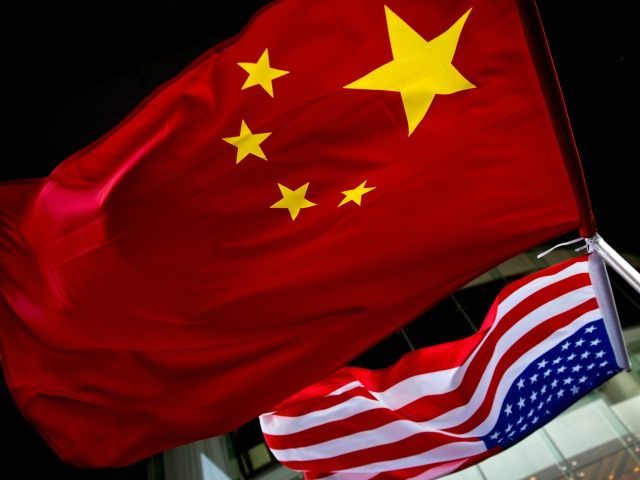China’s state-run Global Times claimed on Monday that the United States has become such a threat to cyberspace that China should threaten nuclear war in the event of an American hacker attack, especially if those American hackers make an effort to weaken China’s nuclear warfare systems.
The Global Times piece is part of Communist China’s perpetual propaganda effort to paint itself as the hapless victim of the offenses it perpetrates against the rest of the world. China is ground zero for cyberwarfare, waging relentless hacking attacks against the rest of the planet and stealing trillions of dollars of intellectual property.
Beijing’s latest cyberattacks included massive campaigns against the Taiwanese government and its semiconductor industry. In the United States, indictments have been filed against a string of alleged Chinese agents who stole valuable government, academic, and corporate data.
With the heat turned up against Chinese espionage, the Communist Party is using its media apparatus to paint the United States as the real menace in cyberspace. The Global Times even managed to loop Taiwan into the great cyber-conspiracy against poor, innocent Beijing:
In 2019 alone, there were three major cyberattacks related to the US. In March 2019, Venezuela’s national power grid collapsed. The country’s president denounced the attack as a well planned cyberattack by the US. This indicates that cyberwarfare has become a new mode of undeclared warfare – an invisible invasion of sorts.
In June 2019, Trump announced retaliation against Iran with a cyberattack too. This showed that cyberwarfare has moved from the backstage to the front lines, from covert warfare to a declaration of war, and from auxiliary fighting to mainstream combat.
On November 4, 2019, the US invited a number of countries to hold the first ever joint cyberattack and defense exercise with the island of Taiwan. It undertook cyberattack scenarios as a new approach to go beyond beach landings and targeting financial systems. It focused on persistent and chaotic destructive attacks on key infrastructure and economic systems. This indicates that the US has crossed the bottom line of the one-China principle in cyberspace.
This was topped off by repeating some unsubstantiated rumors that U.S. and Israeli intelligence were behind the rash of early summer fires in Iran.
The Global Times paradoxically accused the U.S. of trying to “disconnect” China from the Internet and shooting itself in the foot by sabotaging its own cyber-espionage plans by disconnecting China.
Even though disconnection would theoretically make China safer from those hypothetical American gremlins, the Global Times took the possibility as a signal for China to step up its “deterrence” efforts against virtual warfare, including its nuclear deterrence.
“China not only needs to be capable of launching counterattacks in cyberspace, but also must consider special situations in which other countries’ cyberattacks might affect our ability of a nuclear counterattack. We must keep nuclear deterrence to the cyberattacks that aim to paralyze our network,” the article concluded, favorably citing Russia’s defense doctrine, which threatens to respond with nuclear war if a cyberattack targeting its nuclear forces is detected.
Leaving the Chinese Communist Party’s saber-rattling aside, the question of deterrence is an interesting aspect of computer security. For decades, security analysts have wondered what could dissuade China, North Korea, Russia, and other bad actors from their relentless campaigns of theft and espionage. Many have hotly debated the practical and ethical considerations of drawing a line in the electronic sand and threatening real-world consequences for online mischief.
In theory, hacker attacks on vital infrastructure could be as destructive and deadly as terrorist bombings. The Global Times crafted its propaganda after U.S. and NATO concerns about hyperwar: the chilling and increasingly plausible theory that the next great war will be fought in physical and virtual space simultaneously, at blinding speed, making first-strike hacker attacks every bit as provocative and dangerous as first-strike missile attacks.

COMMENTS
Please let us know if you're having issues with commenting.